Dyslexia is a common learning difficulty, one that typically affects a person’s ability to read, write, and spell.
It’s important that educators and others who work with children have a solid understanding of dyslexia in order to effectively support learners with the condition. This includes knowing:
- what dyslexia is
- the common symptoms of dyslexia
- how dyslexia is diagnosed – and how often it is diagnosed – in young children, teenagers, and adults
- the long-term implications of dyslexia
- strategies for managing dyslexia.
What is dyslexia?
Dyslexia is one of several specific learning difficulties, including dyslexia, dyspraxia (or Developmental Coordination Disorder), dyscalculia, dysgraphia, and Attention Deficit Hyperactivity Disorder (ADHD).
According to the NHS, dyslexia is not connected to intelligence, and it is not a learning disability or learning disorder. Instead, it stems from differences in how the brain processes information, making it difficult for people to read, write, and spell words. This is due to a neurological difference that impacts phonological processing, which in turn affects a person’s ability to decode and recognise words accurately.
This can have an impact on how people learn, work, and live their lives more generally.
“As each person is unique, so is everyone’s experience of dyslexia. It can range from mild to severe, and it can co-occur with other learning difficulties. It usually runs in families and is a life-long condition,” states the British Dyslexia Association. “It is important to remember that there are positives to thinking differently. Many dyslexic people show strengths in areas such as reasoning and in visual and creative fields.”
How common is dyslexia?
Dyslexia is a fairly common learning difficulty. In the UK, for example, it is estimated by organisations such as the NHS that around 1 in 10 people have dyslexia. This means that in any British classroom, it’s likely that at least one or two pupils will have dyslexia.
Recognising the prevalence of dyslexia is crucial for educators who want to create an inclusive and supportive learning environment for children.
Long-term implications of dyslexia
Dyslexia is a lifelong condition, but with appropriate support, anyone with dyslexia can overcome its associated challenges – and thrive.
Undiagnosed or unsupported dyslexia can have long-term effects however, particularly on self-esteem, mental health, and academic achievement.
Early intervention and targeted support are the keys to mitigating these potential difficulties.
Common symptoms and signs of dyslexia
It is important to be aware of the signs and common symptoms of dyslexia. They can vary by age, but knowing some of the more common signs can help educators – and others who work with young people – to more quickly identify learners who could benefit from further assessment and support.
Some common symptoms include difficulties in:
- phonological awareness and processing (such as rhyming, segmenting, and blending sounds)
- phonics and reading comprehension, including reading fluency and accuracy
- spelling and decoding unfamiliar words
- organising thoughts and expressing ideas in writing
- remembering sequences, such as days of the week or the alphabet.
The NHS breaks symptoms down into specific age groups:
Symptoms in pre-school children
- Delayed speech development, or speech problems, such as not being able to pronounce long words properly and mixing up phrases
- Problems expressing themselves, such as being unable to remember the right word to use, or putting sentences together incorrectly
- Little understanding or appreciation of rhyming words or nursery rhymes
- Difficulty with, or little interest in, learning letters of the alphabet
Symptoms in primary school children
- Difficulty learning the names and sounds of letters
- Unpredictable and inconsistent spelling
- Confusion over letters that look similar, and putting letters the wrong way round
- Confusing the order of letters in words
- Reading difficulties, such as reading slowly or making errors when reading aloud
- Answering questions well orally, but having difficulty writing the answer down
- Difficulty carrying out a sequence of directions
- Struggling to learn sequences, such as days of the week or the alphabet
- Slow writing speed
- Poor handwriting
- Problems copying written language and taking longer than normal to complete written work
At this age, the NHS also notes it’s common for children with dyslexia to have poor phonological awareness – recognising that words are made up of smaller units of sound, or phonemes, and changing and manipulating phonemes can create new words and meanings – and word attack skills, which is when children make sense of unfamiliar words by looking for smaller words, or collections of letters, the child has previously learned.
Teenagers and adults
- Poorly organised written work that lacks expression
- Difficulty planning and writing essays, letters or reports, or revising for examinations
- Trying to avoid reading and writing whenever possible
- Difficulty taking notes or copying
- Poor spelling
- Struggling to remember things, such as a PIN or telephone number, or struggling to meet deadlines
Testing for dyslexia in children
When dyslexia is suspected by a parent or educator, it’s common for a dyslexia diagnostic assessment to be carried out at the child’s school. This comprehensive evaluation can be conducted by either an educational psychologist or qualified specialist dyslexia teacher. The assessor will look at areas such as the child’s reading skills, language skills and language development, and phonological awareness.
The dyslexia assessment, combined with input from the child’s teacher and family members, can lead to a formal diagnosis of dyslexia.
If dyslexia is diagnosed, dyslexia experts are also available to support children – alongside their families and teachers – with appropriate interventions and strategies for dealing with dyslexia.
Testing for dyslexia in adults
Dyslexia can often go undiagnosed in adults, which may impact their professional and personal lives.
It’s worth noting that dyslexia in adults can only be diagnosed through a certified diagnostic assessment, and these are not available through the NHS.
However, the British Dyslexia Association points out that a formal diagnosis means that:
- workplaces and educational institutions have a duty to make reasonable adjustments to accommodate dyslexia difficulties, as dyslexia is covered under the Equality Act 2010
- adults with dyslexia can have a better understanding about the nature of their difficulties, which can help them to implement effective strategies for managing dyslexia in their everyday lives.
There are also several dyslexia screening tests available online, but it’s important to remember that while helpful, these tests cannot provide a formal dyslexia diagnosis.
Treating and managing dyslexia
Once diagnosed, dyslexic children and adults can benefit from a number of different interventions and accommodations. Effective strategies can include:
- using assistive technology tools, such as text-to-speech software or audiobooks, to support learning or work activities
- multi-sensory learning approaches that engage different parts of the brain, such as touch and movement
- requesting extra time during assessments or assignments.
Collaboration and support
Collaboration between educators, special education needs co-ordinators, educational psychologists, and parents is also essential for the success of dyslexic learners. By working together, they can develop individualised education plans (IEPs) tailored to each child’s needs, ensuring they receive appropriate support throughout their educational journey and reach their full potential.
Take your career in education to the next level
Use educational psychology to enhance classroom experiences for all learners, including learners with dyslexia, with the 100% online MSc Educational Psychology distance-learning degree from North Wales Management School, part of Wrexham University.
This master’s degree has been created to equip educational professionals – including teachers, head teachers, school managers, additional learning needs coordinators, and support staff, among others – with a comprehensive understanding of the role of educational psychologists, as well as the core psychological concepts that underpin practice in the psychology of education.
You will learn how to apply psychological evidence to shape and improve classroom and educational practice, and develop knowledge in key areas of educational psychology, including:
- child and adolescent development
- behaviour disorders and the role of resilience
- additional learning needs and giftedness
- psychology of health and wellbeing
- forensic psychology
- understanding of clinical and psychometric assessments.




